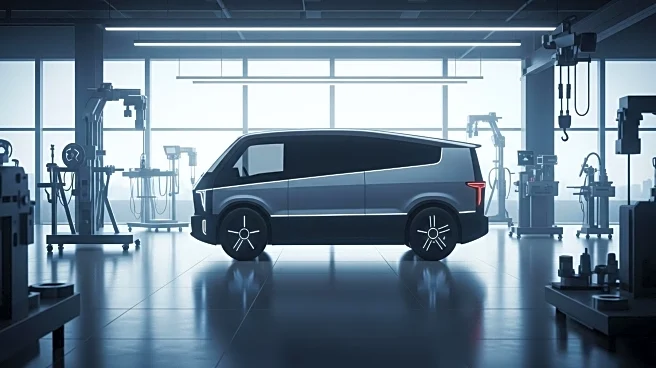What's Happening?
Leyland Trucks has completed its £5.1 million Zero Emissions Truck Testing Automation (Zetta) project, enhancing its production capacity for battery electric vehicles (BEVs). The project, supported by the Advanced Propulsion Centre and other partners, introduced new assembly lines for electric drive modules and high-voltage battery systems. The initiative also implemented automated safety processes and digitalization measures, allowing for virtual testing of new processes. This development aims to strengthen Leyland Trucks' BEV production capabilities and support the UK's net zero targets.
Why It's Important?
The expansion of electric truck production at Leyland Trucks represents a significant step towards achieving the UK's net zero emissions goals. By increasing BEV production capacity, the company is contributing to the reduction of carbon emissions in the transportation sector. The project also showcases the potential for automation and digitalization in manufacturing, which could lead to increased efficiency and innovation. This development is crucial for the commercial vehicle industry as it transitions towards more sustainable practices.
What's Next?
As Leyland Trucks enhances its BEV production, the company may explore further scaling of its operations to meet growing demand. The introduction of new megawatt charging technology across the motorway network by BP Pulse and Moto could facilitate the adoption of electric trucks by improving infrastructure. The success of the Zetta project may serve as a blueprint for other manufacturers looking to integrate automation and digitalization into their production processes.
Beyond the Headlines
The Zetta project highlights the importance of collaboration between industry and government in advancing sustainable technologies. The initiative's focus on automation and digitalization could lead to long-term shifts in manufacturing practices, potentially influencing other sectors. The project's success may encourage further investment in green technologies, supporting the broader transition to a low-carbon economy.









